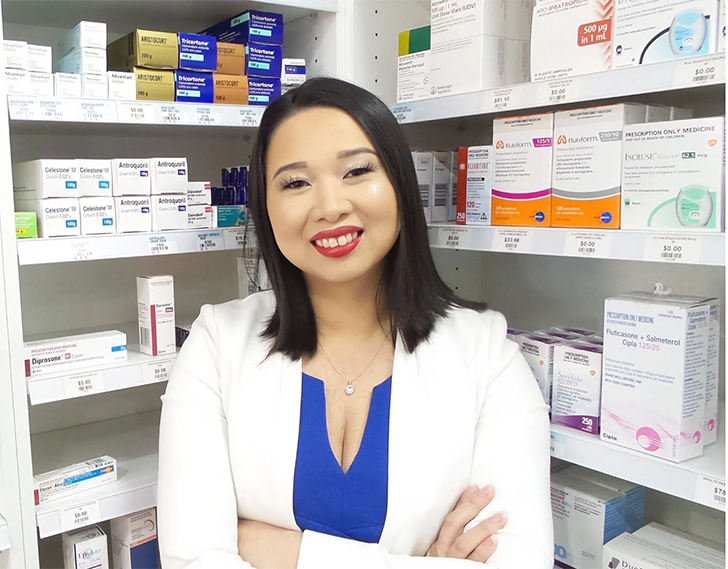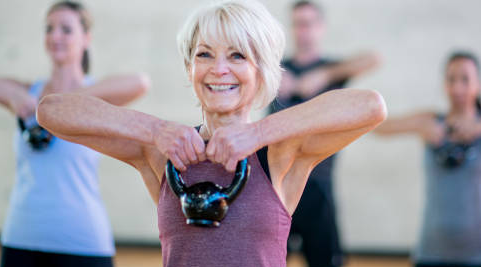Refugee Week this year was an opportunity to draw upon shared hardships to heal wounds, to learn from each other and to move forward. The experiences of community pharmacist Veronica Nou underscore this and highlight the synergy between being a community pharmacist, and a refugee and human rights advocate.
“The roles are similar in that people come to you for help whether it’s as a pharmacist, or as an advocate for refugees and human rights,” the Western Sydney community pharmacist says.
“It makes no difference if they are patients or people just wanting help; in the end you are advocating for them. As a community pharmacist, you advocate for the patient; and when fighting for refugees you are advocating for them and their rights.”
Veronica’s passion comes from a position of personal knowledge, being a refugee herself and having a story as harrowing as any who have struggled to make a life in Australia.
Born in Cambodia her early childhood in a professional, urban family would have seemed ideal but when the Khmer Rouge came to power it made her and her family targets.
“We did not meet the vision of what the Khmer Rouge regarded as real Cambodians who they believed were people who worked in rural areas. They regarded professionals like doctors and teachers who lived in the cities with suspicion as they believed they were too Westernised.
“So people were driven out of the cities and we were marked because my parents were both doctors and our family was quite outspoken – and we lived in the city.”
Surviving the Khmer Rouge genocide which saw about a quarter of the country’s population killed, took subterfuge and Veronica says her father posed as a taxi driver during that time to stay alive.
“When the Vietnamese overthrew the Khmer Rouge, my father was able to resume his real career and passion which was medicine and he returned to being a doctor and also opened a clinic and a school.
“But things were not to go well and one day members of the new regime turned up at the school and executed all the staff. My father was at the clinic and so was very lucky but those murders convinced him he had to get his family out of Cambodia.”
The family travelled with others to the Thai border where they were stopped by soldiers who debated whether to kill them but eventually separated the young women from the rest of the group which was allowed to continue into Thailand.
“We don’t know what happened to those young women but I was lucky as I was too young to be included with them.
“We went into a refugee camp near the border but one day a group attacked the camp looking for someone but no-one knew who they were talking about.
“This group then gathered the young children and tied us up and told the adults they would pour burning water over us if the adults did not give this person up. But no-one knew who they were talking about.
“So they poured boiling water over us, myself included.”
Veronica pauses and then explains she carries the scars on her neck, chest and body to this day.
“It means I am certainly not a bikini woman,” she jokes in a display of the character that has helped her survive the ordeal.
“After that incident, we were moved to another camp where I received medical treatment and where my parents worked with Doctors Without Borders until an opportunity arose to move to New Zealand.”
As refugees in New Zealand, the family worked hard to assimilate but neither of her parents’ medical qualifications were recognised so her father worked in a factory during the day and studied at night to become qualified. Her mother worked as a seamstress and translator, and cared for Veronica and now her baby sister.
“Dad got his medical qualifications back and then saw there were opportunities for doctors in rural areas of Australia.
“But they needed money. It turned out that before we fled Cambodia, my mother and father had sewn some diamonds into my mother’s arm so Dad cut these out and sold them so we could move to Australia.”
At this stage, Veronica was still only about 11 and had been through harrowing and traumatic experiences which helped shape her commitment to helping other people.
“After a time in rural Victoria we moved to Cabramatta in Western Sydney which helped further shape me as we were in a very large refugee population where social and economic disadvantage was evident everywhere.
“For instance, being able to afford meat was considered something of a luxury.
“But I was lucky and got a scholarship to a private girls’ school which was outside of the area so I got to see more affluent aspects of Sydney.
“The downside was that I wasn’t accepted as I was an outsider. At first I was resentful but it was a case of them not understanding me, and me not understanding them.”
Veronica excelled at school and then enrolled in pharmacy at university.
“Pharmacy appealed for a lot of reasons but mainly because I felt I could contribute something worthwhile and help people improve their quality of life.
“Culturally it also appealed because in Cambodia being a pharmacist is something special – even more so than being a doctor.
“I found a career that I love and where I fit in.”
Her career also complements her work as a refugee advocate and she is now a National Convenor for the Mums for Refugees organisation which provides services, advice and products for refugees, as well as undertaking fund-raising and political advocacy activities.
“As a refugee myself I had to do something and say something for refugees. It’s the most fulfilling, rewarding – and unpaid and under-staffed – work you can imagine.
“It is so meaningful to help people who are not in a position to do the things you can.”
Refugee advocacy is something she wishes more people would become involved in and for the first time in our talk, despite describing in detail her torture and fraught experiences, she becomes emotional - not for herself but for others.
“I just don’t want any child today to go through what I went through.
“It shouldn’t happen, and it doesn’t need to happen.
“We need more people advocating for refugees and especially against holding children in detention.
“I know what it’s like but I also want to be an example to all refugees. If I can make it, anyone can.”



